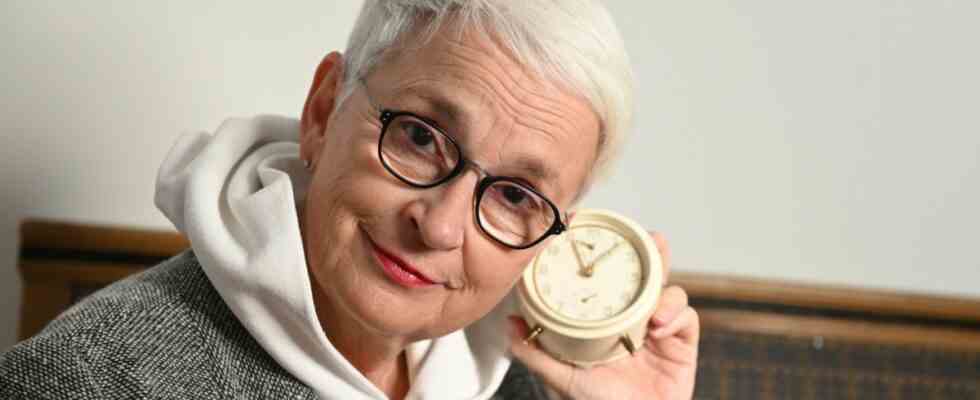“I’m a thing person,” says Barbara Mundel as she sits down at the table in her meeting room. In order for you to believe this self-assessment, she shoves a book in front of you: “The Things. A History of Women in 100 Objects” by Annabelle Hirsch. Barbara Mundel laughs. “I’d like to be a minimalist, but I can’t. Things are growing on me.” The size of the bag in which the director of the Munich Kammerspiele brought her “favorite thing” shows that she finds it rather difficult to reduce herself. It is sewn from light-colored natural material and, if necessary, will hold not only a sufficiently large toiletry bag, but also two liters of milk, a pack of pasta and a pound of apples. For example. This bag represents the pragmatism of a working woman who goes shopping after a long day at work.
And then Barbara Mundel pulls out a package wrapped in white kitchen paper. She carefully unwraps an alarm clock and places it on the table in front of her. It is round, made of ivory-colored metal, has numerals and hands and a gold-colored push button on top.
This alarm clock was on her father’s bedside table. This mechanical timepiece has done its job throughout its working life and rang at 4.30 a.m. on many working days. Apparently so loud that its rattle penetrated the walls. “My father was a miner and worked in shifts,” says Mundel. This alarm clock not only reminds her of her childhood in Bad Salzdetfurth, but also of a world that no longer exists. The salt mine was closed more than 30 years ago. Potash salt for industry was dug out of the ground here. That shaped the place, says Mundel. At some point, however, importing was cheaper than mining. “The closure of the plant hit my father very hard,” says Mundel. “The place never recovered from that.” She remembers the community spirit of the buddies who partied a lot, who stood up for each other, who were proud of their profession.
Next to the alarm clock there was a black telephone with a rotary dial and a high cradle on which the receiver lay, Mundel recalls. As a qualified mining engineer, the father bore responsibility. If the phone rang at night, it wasn’t a good sign. Mundel knew that as a child.
As a high school student, she herself had to get up at six o’clock and take the bus to Hildesheim. The last trip back from there was at 10:30 p.m. on weekends. Way too early for a teenager. After graduating from school, she moved away from her hometown. She has lived in Berlin, Frankfurt, Hanover, Lucerne and Freiburg. Also several times in Munich, where the 63-year-old once studied, she has been back here since the 2020 season.
Her father is now 95 and her mother died this summer. Her parents were married for 67 years. In her last years her mother did not fare well. This is another reason why aging and the treatment of old people in our society have become an issue for Mundel. You can tell a lot about geriatric care, says the director. Her stern look expresses: not too much good.
A year and a half ago she took the alarm clock from her parents’ house. Mundel doesn’t dare tease him, fearing something might break inside him. So its ticking and its ringing will remain sounds of memory forever. The theater woman Mundel likes to make things speak. “Because they tell many stories.”
In “Favorite Things” people talk about what their hearts are about, what accompanies them through life, what brings them happiness and what they would never part with.

